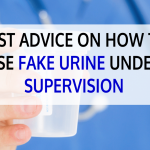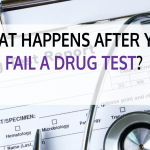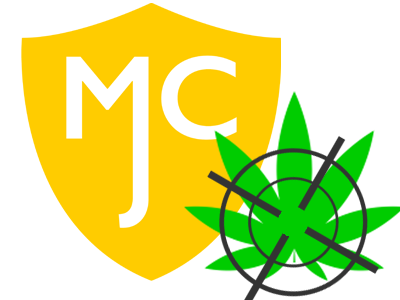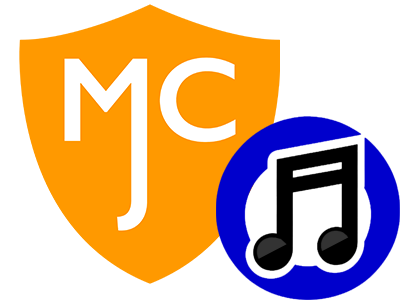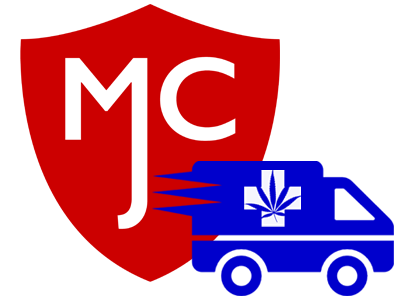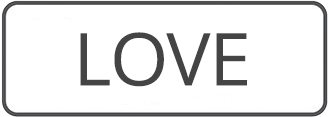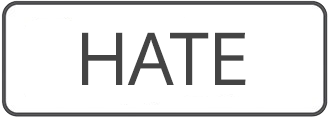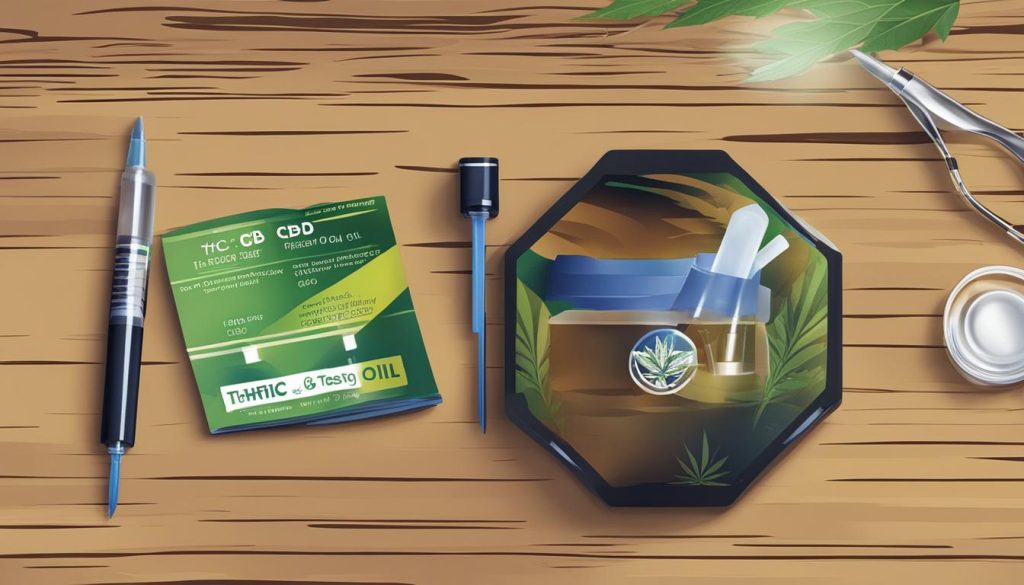
Welcome to our article on CBD oil and its detection and duration in drug tests. In recent years, CBD oil has gained popularity for its potential health benefits. However, many individuals are concerned about whether it can be detected in drug tests and how long it remains in their system. In this article, we will provide insights into CBD oil’s interaction with drug tests, debunk common misconceptions, and offer guidance on responsible use.
Before we delve into the details, it’s important to clarify that drug tests primarily screen for THC, the psychoactive compound found in marijuana. CBD itself does not typically show up in drug tests. However, certain CBD products may contain trace amounts of THC, which can potentially be detected in workplace drug tests.
Key Takeaways:
- Drug tests primarily screen for THC, not CBD oil.
- Certain CBD products may contain trace amounts of THC, which can lead to a positive result in drug tests.
- Understanding the differences between CBD and THC is crucial in interpreting drug test results accurately.
- The type of CBD product consumed can influence the likelihood of THC presence and the potential to show up in a drug test.
- Choosing reputable manufacturers and verifying third-party testing can help ensure accurate labeling and reduce the risk of THC contamination in CBD products.
Understanding CBD and THC
When discussing CBD oil and drug tests, it’s essential to have a clear understanding of CBD and THC. CBD, or cannabidiol, is a chemical compound found in the cannabis plant. Unlike THC (tetrahydrocannabinol), CBD does not produce psychoactive effects or the “high” commonly associated with marijuana.
The cannabis plant encompasses two primary species: marijuana and hemp. While marijuana contains high levels of THC, hemp has trace amounts of THC but is rich in CBD. This distinction is crucial because CBD products derived from hemp are less likely to contain significant levels of THC compared to those derived from marijuana.
It’s important to note that CBD products can vary in their composition, with some containing minimal amounts of THC that could be detected in a drug test. However, pure CBD itself does not show up on drug tests. By understanding the differences between CBD and THC and the potential for THC presence in certain CBD products, individuals can make informed decisions regarding CBD use and drug testing.
Types of CBD Products
When it comes to CBD products, there are several different types available on the market. Understanding these variations can help consumers make informed decisions about which products may be best for them. The main types of CBD products include CBD oils, CBD isolates, broad-spectrum CBD, and full-spectrum CBD.
CBD Oils
CBD oils are one of the most popular forms of CBD products. They are typically made by extracting CBD from either hemp or cannabis plants and then diluting it with a carrier oil. CBD oils can vary in terms of their CBD concentration and the type of carrier oil used. They offer a versatile way to consume CBD and can be taken orally or applied topically.
CBD Isolates
CBD isolates are the purest form of CBD available. They are made by extracting CBD from the plant and isolating it from all other cannabinoids and compounds. This means that CBD isolates do not contain any THC or other potentially beneficial compounds found in the plant. CBD isolates are often used by individuals who want to ensure they are consuming pure CBD without any trace amounts of THC.
Broad-Spectrum CBD
Broad-spectrum CBD products are similar to full-spectrum CBD products but with one important difference. While both contain multiple cannabinoids and compounds found naturally in the plant, broad-spectrum CBD products have had THC removed. This makes them a good option for individuals who want to experience the potential benefits of multiple cannabinoids without worrying about THC presence.
Full-Spectrum CBD
Full-spectrum CBD products contain all of the compounds found naturally in the plant, including CBD, THC, and other cannabinoids. The THC levels in full-spectrum products are typically within legal limits, but they may still be present. It’s important to note that while full-spectrum CBD products can provide enhanced benefits due to the entourage effect, they may lead to a positive result on a drug test if the THC levels are too high.
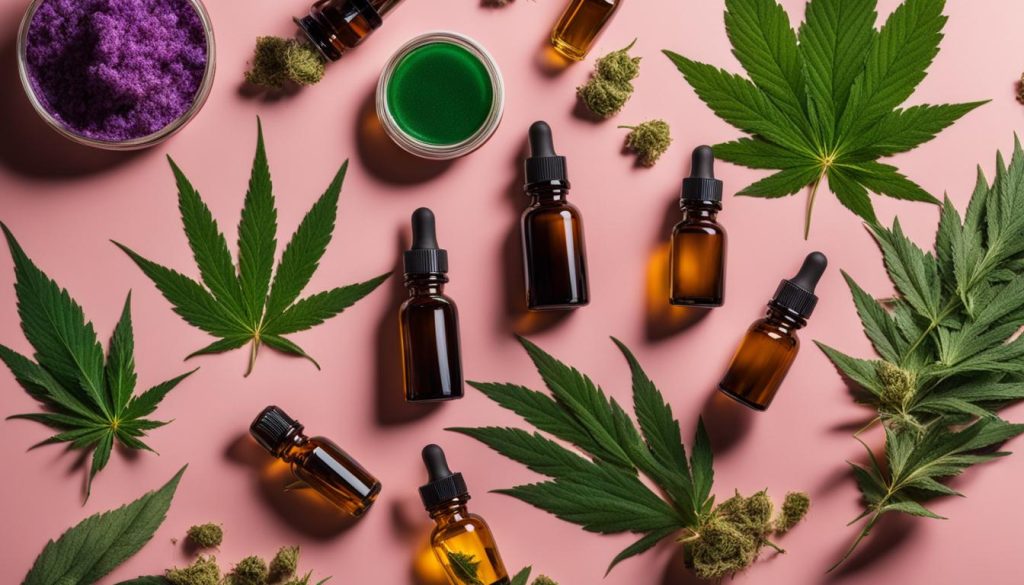
CBD Product Contamination, THC Presence, and Third-Party Testing
When it comes to CBD products, contamination and mislabeling can be significant concerns. Some manufacturers may not provide accurate information about THC presence in their products or fail to disclose the source of their CBD extract. This lack of transparency makes it difficult for consumers to determine the THC levels in the products they are using. To address this issue, third-party testing plays a vital role in ensuring accurate labeling and reducing the risk of THC contamination. By relying on independent laboratories for testing, manufacturers can provide consumers with reliable information about the THC content in CBD products.
“Transparency and third-party testing are crucial in the CBD industry to ensure consumers have access to safe and accurately labeled products,” says Dr. Jane Rodriguez, a leading expert in cannabinoid research. “By conducting tests through independent laboratories, manufacturers can demonstrate their commitment to quality and help consumers make informed decisions.”
Third-party testing involves sending CBD products to accredited laboratories to analyze their cannabinoid profile, including THC levels. These tests provide objective and unbiased results, allowing consumers to verify the THC content listed on product labels. The availability of third-party test results gives consumers peace of mind, knowing that they are using CBD products with low or no THC. Additionally, it helps protect against the potential risks associated with THC detection in drug tests.
| Benefits of Third-Party Testing | Protecting Consumers | Ensuring Product Quality |
|---|---|---|
| 1. Accurate THC Content Information | 1. Minimizing THC Contamination Risk | 1. Meeting Regulatory Standards |
| 2. Reliable Labeling | 2. Avoiding Unexpected THC Presence | 2. Eliminating Mislabeling |
| 3. Peace of Mind for Consumers | 3. Ensuring CBD Product Safety | 3. Building Trust with Consumers |
By choosing CBD products that have undergone third-party testing, consumers can have confidence in the accuracy of the THC content information provided. This empowers them to make informed choices based on their individual needs and minimize the potential risks associated with THC presence in drug tests. The use of third-party testing helps foster transparency, product quality, and consumer trust within the CBD industry.
Protecting consumers through third-party testing
When it comes to the CBD industry, quality and accuracy are paramount. This is why third-party testing plays a crucial role in protecting consumers from CBD product contamination and ensuring the absence of THC. By relying on independent laboratories, manufacturers can provide accurate information about THC presence in their products, enabling consumers to make informed decisions and have peace of mind. As the CBD market continues to grow, third-party testing will remain a key factor in maintaining product integrity and consumer trust.
Drug Testing Methods
When it comes to drug testing, there are several methods used to detect the presence of substances in the body. Each method has its own advantages and limitations, and it’s important to understand how they work in order to interpret the results accurately.
Urine Testing
Urine testing is the most common method used for drug screening, especially in the workplace. It is non-invasive and relatively inexpensive, making it a popular choice for employers. THC can be detected in urine for up to a month or more after use, depending on various factors such as frequency of CBD use, THC concentration, and individual metabolism.
Hair Testing
Hair testing is another method used to detect drug use. This method has a longer detection period compared to urine testing, as THC can be detected in hair follicles for up to 90 days. Hair testing is often used in legal and forensic settings, but it is less common in the workplace due to the higher cost and the requirement for specialized laboratories.
Blood Testing and Saliva Testing
Blood testing and saliva testing are less commonly used for drug screening, but they can be effective in detecting recent drug use. THC is typically detectable in blood for up to 36 hours after use, while saliva testing can detect THC for up to 48 hours. These methods are usually used in situations where recent impairment is a concern, such as accidents or suspected drug use while operating machinery.
| Drug Testing Method | Detection Period for THC |
|---|---|
| Urine Testing | Up to a month or more |
| Hair Testing | Up to 90 days |
| Blood Testing | Up to 36 hours |
| Saliva Testing | Up to 48 hours |
It’s important to note that the detection period can vary depending on individual factors and the specific circumstances of CBD use. It’s always advisable to consult with a healthcare professional or drug testing specialist for a more accurate assessment of the potential for THC detection in drug tests.
Factors Affecting Drug Test Results
When it comes to drug test results, several factors come into play that can influence the outcome. Individual factors such as age, gender, and general health history can impact the way our bodies process and eliminate substances. Additionally, the frequency of CBD use can affect the detection window in urine testing. Occasional users may have detectable THC in their system for up to 3 days, while frequent and chronic users may test positive for THC for longer periods, ranging from 10 to 30+ days.
The concentration of THC in CBD products is another essential factor to consider. CBD products with higher levels of THC are more likely to result in a positive drug test. It’s crucial to choose CBD products from reputable manufacturers that provide accurate labeling and transparency through third-party testing.
Metabolism also plays a role in drug test results. The rate at which our bodies process and eliminate substances can vary from person to person. Those with faster metabolisms may clear THC from their system more quickly, resulting in a shorter detection window. On the other hand, individuals with slower metabolisms may take longer to eliminate THC, leading to a longer detection period.
| Factors Affecting Drug Test Results | Detection Window in Urine Testing |
|---|---|
| Occasional CBD Users | Up to 3 days |
| Moderate CBD Users | 5-7 days |
| Frequent CBD Users | 10-15 days |
| Chronic CBD Users | 30+ days |
It’s important to note that these timelines are general estimates and may vary depending on individual factors and the specific CBD product used. Hydration levels can also impact the detection window, as staying well-hydrated can help flush substances out of the system more efficiently.
Cut-Off Levels and False Positives
When it comes to drug testing, cut-off levels play a crucial role in determining whether a test result is positive or negative. Cut-off levels are the minimum amount of a substance, such as THC, that must be present in a sample to trigger a positive result. These levels are set by regulatory bodies and vary depending on the type of drug test being conducted.
False positives can occur when substances other than the targeted compound, in this case, THC, trigger a positive result. While drug tests are designed to be accurate, false positives can happen due to various factors. One common cause of false positives is passive exposure, such as being in close proximity to people smoking marijuana. However, it’s essential to note that false positives from passive exposure are rare and typically require high levels of exposure in a confined space.
Medication use is another factor that can potentially lead to false positives in drug tests. Certain medications, both over-the-counter and prescription, can contain compounds that may cross-react with the targeted substances in the test. It’s essential to disclose any medication use to the testing facility to ensure accurate interpretation of the results. In some cases, a second analysis or review by a specialist may be conducted to verify the test results and eliminate false positives.
“Cut-off levels are the minimum amount of a substance that must be present in a sample to trigger a positive result.”
Table: THC Cut-Off Levels for Different Drug Testing Methods
| Drug Testing Method | Cut-Off Level for THC |
|---|---|
| Urine Testing | 50 ng/mL |
| Hair Testing | 0.1 ng/mL |
| Blood Testing | 1 ng/mL |
| Saliva Testing | 4 ng/mL |
The table above illustrates the cut-off levels for THC in various drug testing methods. These levels are determined based on scientific research and regulatory guidelines. It’s important to understand that different testing methods have different detection windows and may vary in terms of sensitivity to THC. Consulting with healthcare professionals or testing facility experts can provide further clarity on the specific cut-off levels used in a particular drug test.
CBD in Household Products
When it comes to CBD, it’s not just limited to oils and tinctures. The compound has found its way into various household products, offering potential benefits beyond traditional CBD consumption. From toiletries and cosmetics to topical creams and even food and beverage products, CBD has become a popular ingredient in a wide range of everyday items.
When using CBD-infused household products like toiletries and cosmetics, there is typically no need to worry about it showing up on a drug test. This is because CBD does not enter the bloodstream or become stored in the body’s fat cells. However, it’s important to note that not all CBD products are created equal.
While topical creams and CBD-infused toiletries are unlikely to contain THC, the psychoactive compound present in marijuana, the same cannot be said for food and beverage products. Due to gaps in regulation and oversight, CBD edibles and tinctures may have a higher risk of containing THC. Therefore, if you are concerned about drug testing, it’s essential to carefully consider the type of product and its potential THC content before consuming CBD-infused food and beverages.
| Household Product | Risk of THC Presence |
|---|---|
| Toiletries and Cosmetics | Low risk |
| Topical Creams | Low risk |
| Food and Beverage Products | Higher risk |

When it comes to CBD and household products, it’s important to make informed decisions based on the potential risk of THC presence. By understanding the type of product and verifying its ingredients, you can enjoy the benefits of CBD while minimizing the risk of a positive drug test.
CBD and Drug Testing: Misconceptions
When it comes to CBD and drug testing, there are several misconceptions that need clarification. One common misconception is that CBD itself will show up on a drug test. This is not true, as drug tests primarily screen for THC, the psychoactive compound in cannabis. However, it’s important to note that certain CBD products may contain trace amounts of THC, which can potentially lead to a positive result in a drug test.
To avoid any confusion, it’s essential to understand the differences between CBD and THC. CBD is non-psychoactive and does not produce a “high” like THC. CBD products derived from hemp are less likely to contain THC compared to those derived from marijuana. Additionally, the type of CBD product can also affect the likelihood of THC presence. CBD isolates, which contain pure CBD, are less likely to have THC compared to full-spectrum CBD products that contain all the compounds found in the cannabis plant.
When considering CBD use and drug testing, it’s crucial to choose reputable manufacturers who follow strict quality control processes. Mislabeling and contamination are common issues in the CBD industry, so verifying third-party testing can provide more accurate information about THC presence in CBD products. By understanding these misconceptions and taking the necessary precautions, individuals can make informed decisions about CBD consumption while minimizing the risk of a positive drug test.
Potential Risks and Precautions
When it comes to using CBD products, there are potential risks to be aware of, particularly in relation to drug testing. Although CBD itself does not show up on drug tests, the presence of THC in certain CBD products can lead to a positive result. This is why it’s essential to understand the potential risks and take necessary precautions to minimize the likelihood of a positive drug test.
One of the main precautions to consider is choosing THC-free CBD products. By opting for products that are labeled as THC-free or contain non-detectable levels of THC, you can significantly reduce the risk of THC presence in your system. Additionally, it’s crucial to look for certificates of analysis from third-party testing to ensure the accuracy of product labeling and to verify the absence of THC.
Table:
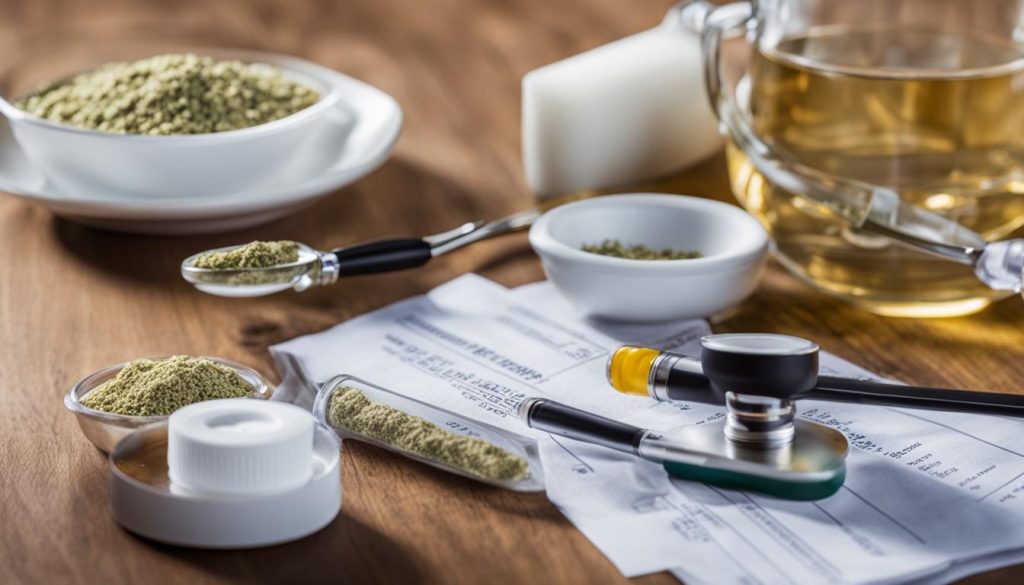
| Risks | Precautions |
|---|---|
| Positive drug test due to THC presence | Choose THC-free CBD products |
| Inaccurate product labeling | Look for certificates of analysis from third-party testing |
| Unreputable manufacturers | Shop with licensed dispensaries that prioritize product quality |
| Irresponsible use and dosage | Follow recommended dosages and practice responsible use |
In addition to product selection and verification, it’s also important to be cautious about the type of CBD product you choose. While CBD-infused household items such as toiletries, cosmetics, and topical creams are unlikely to show up on drug tests, food and beverage products that contain CBD pose a higher risk. Edibles and tinctures, in particular, may have a higher chance of containing THC due to gaps in regulation and oversight.
By considering these potential risks and taking the necessary precautions, you can enjoy the benefits of CBD while minimizing the risk of a positive drug test. Remember to choose reputable manufacturers, verify third-party testing, and practice responsible use by adhering to recommended dosages. By doing so, you can confidently incorporate CBD into your wellness routine without worrying about the potential consequences of a positive drug test.
The Consequences of Failing a Drug Test
Failing a drug test can have severe consequences, particularly in terms of employment and legal implications. When an individual fails a drug test, it can impact their current job or prospective employment opportunities. Many companies have strict drug policies and may terminate an employee who tests positive for drugs, especially if drug use violates the terms of their employment agreement or compromises workplace safety.
In addition to employment consequences, failing a drug test can also have legal implications. For example, if drug use is prohibited by law or violates probation or parole conditions, failing a drug test could result in criminal charges, increased fines, or extended probation or parole periods. Legal repercussions may vary depending on the jurisdiction and the specific circumstances surrounding the drug test failure. It is essential to consult with legal counsel to understand the potential legal consequences in each case.
It’s important to note that drug tests are generally conducted to ensure a safe and drug-free working environment or to comply with legal requirements. While CBD oil itself may not show up on a drug test, the presence of THC in certain CBD products can lead to a positive result. Therefore, individuals using CBD products should be aware of the potential risks and take appropriate precautions to minimize the chance of failing a drug test.
Conclusion
In conclusion, when it comes to drug tests, CBD oil itself does not show up as a positive result. However, individuals should be aware of THC contamination in certain CBD products. Mislabeling and contamination issues contribute to THC presence, which can lead to a positive drug test. To mitigate this risk, it is crucial to choose reputable manufacturers and verify third-party testing to ensure product quality and accuracy.
Responsible use is also key in avoiding a positive drug test. Opting for THC-free CBD products, following recommended dosages, and practicing caution when using CBD can help reduce the likelihood of THC contamination and subsequent positive results. By understanding the differences between CBD and THC, as well as the various types of CBD products available, individuals can make informed decisions and ensure responsible use.
It is important to note that the consequences of failing a drug test can be significant, including potential employment issues and legal implications. Therefore, it is essential to consider the implications of a positive drug test before using CBD products. Abstaining from CBD use for at least 30 days before a drug test and taking necessary precautions can help individuals avoid negative consequences. By prioritizing responsible use and making informed choices, individuals can enjoy the potential benefits of CBD oil while minimizing the risks associated with drug tests.
FAQ
Will CBD oil show up on a drug test?
CBD itself does not show up on a drug test. However, some CBD products may contain trace amounts of THC, which can potentially be flagged in a workplace drug test.
What is the difference between CBD and THC?
CBD is a non-psychoactive compound found in the Cannabis Sativa plant, while THC is the psychoactive compound responsible for the “high” associated with marijuana.
What are the different types of CBD products?
CBD oils can be made from hemp or cannabis plants. CBD isolates contain pure CBD, full-spectrum CBD products contain all compounds found in the plant, and broad-spectrum CBD products have most compounds removed but retain CBD.
Are CBD products often contaminated or mislabeled?
Yes, contamination and mislabeling are common issues with CBD products. It is essential to choose reputable manufacturers who follow strict quality control processes and provide transparency through third-party testing for accurate labeling and reduced risk of THC contamination.
What are the different drug testing methods?
Urine testing is the most common method, followed by hair, blood, and saliva testing. Each method has a different detection period for THC.
What factors can affect drug test results?
Individual factors, frequency of CBD use, THC concentration, and metabolism can all influence drug test results.
Can CBD in household products trigger a positive drug test?
CBD in toiletries, cosmetics, or topical creams is unlikely to show up on a drug test. However, food and beverage products that contain CBD may pose a higher risk.
Are there any misconceptions about CBD and drug testing?
Yes, CBD itself does not show up on drug tests, but the presence of THC in certain CBD products can lead to a positive result.
What are the potential risks of CBD use and how can they be minimized?
CBD consumption carries potential risks in terms of drug testing. To minimize the risk, it is recommended to choose THC-free CBD products, verify third-party testing, and follow recommended dosages.
What are the consequences of failing a drug test?
Failing a drug test can have various consequences, including potential employment issues, legal implications, and impacts on workers’ compensation for job-related injuries.
Does CBD oil show up on a drug test? Does it contain THC?
CBD oil does not show up on drug tests, but the presence of THC in certain CBD products can lead to a positive result. It’s important to choose reputable manufacturers, verify third-party testing, and practice responsible use to minimize the risk of a positive drug test.







